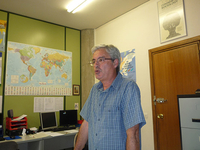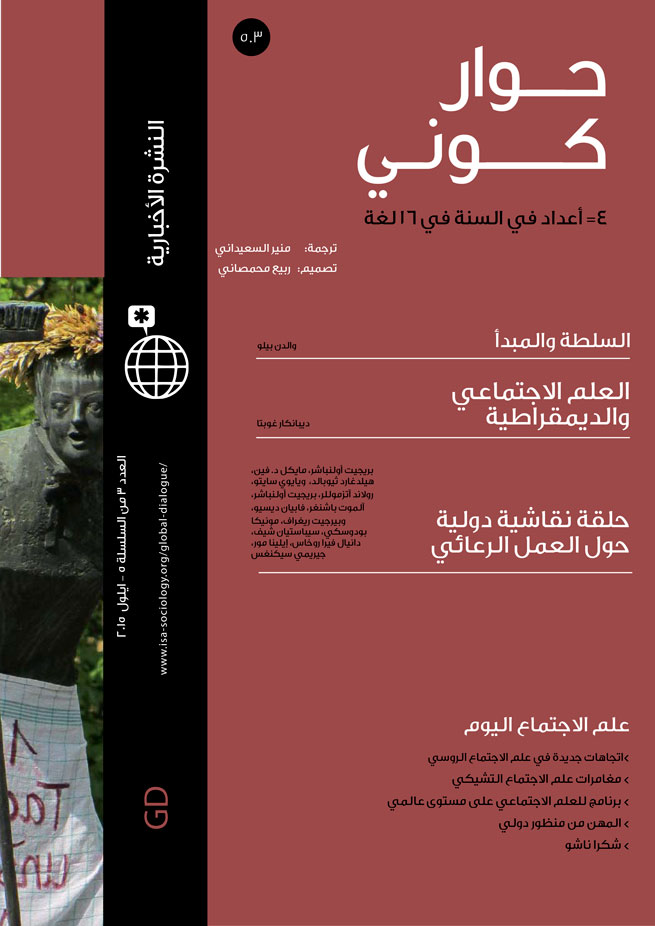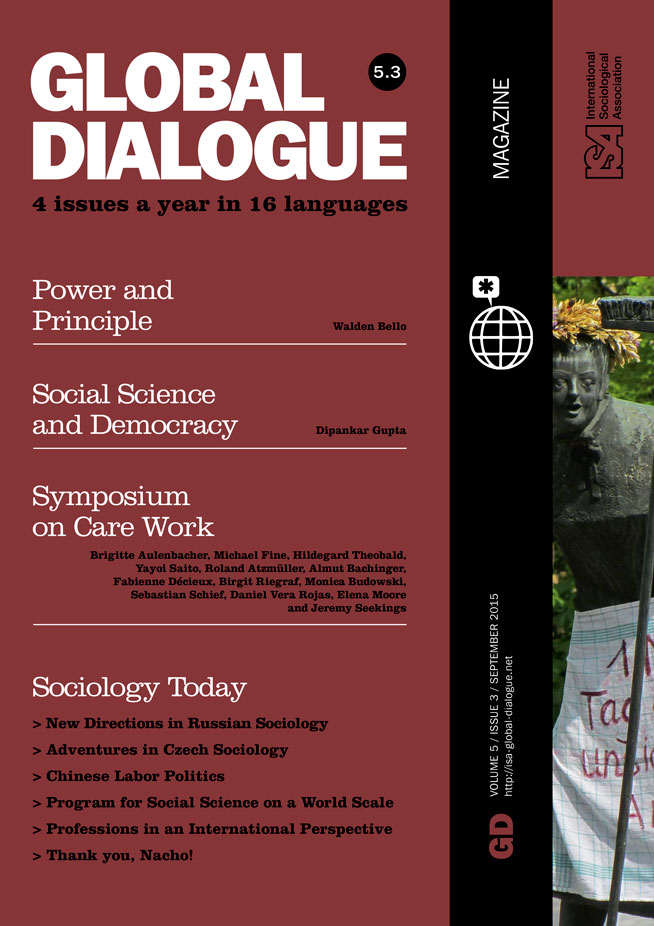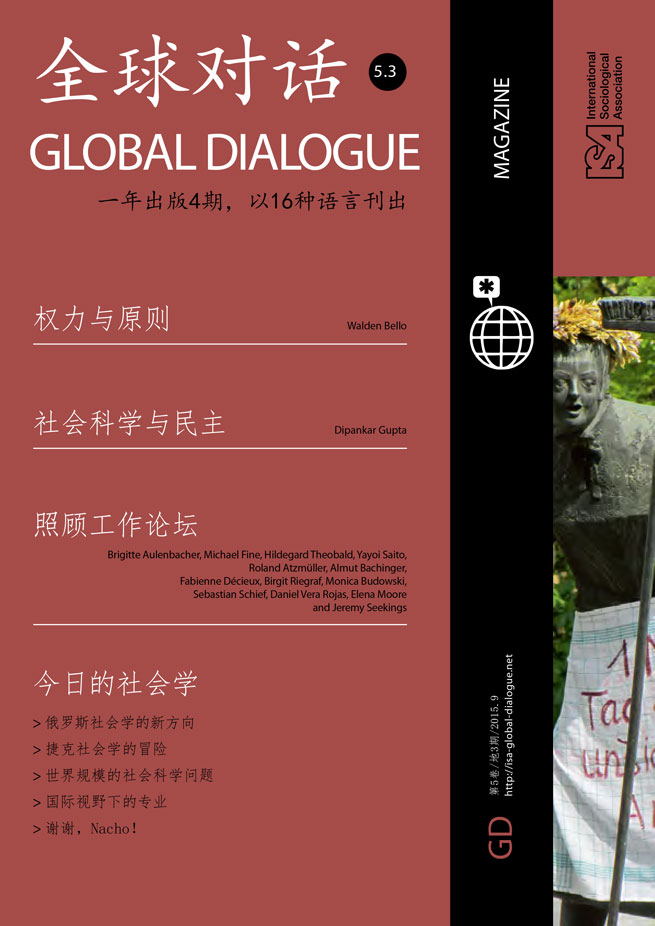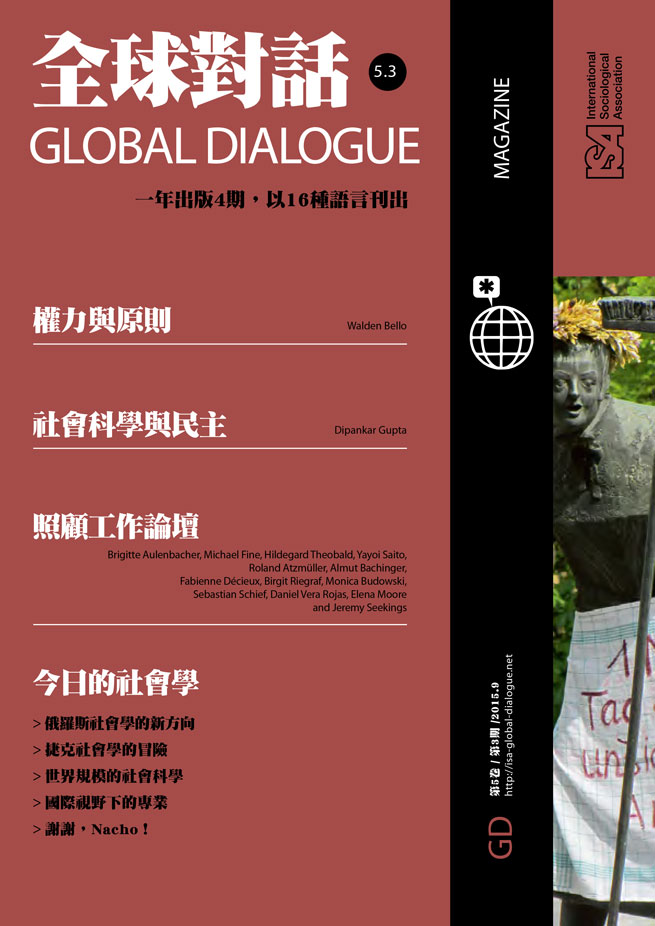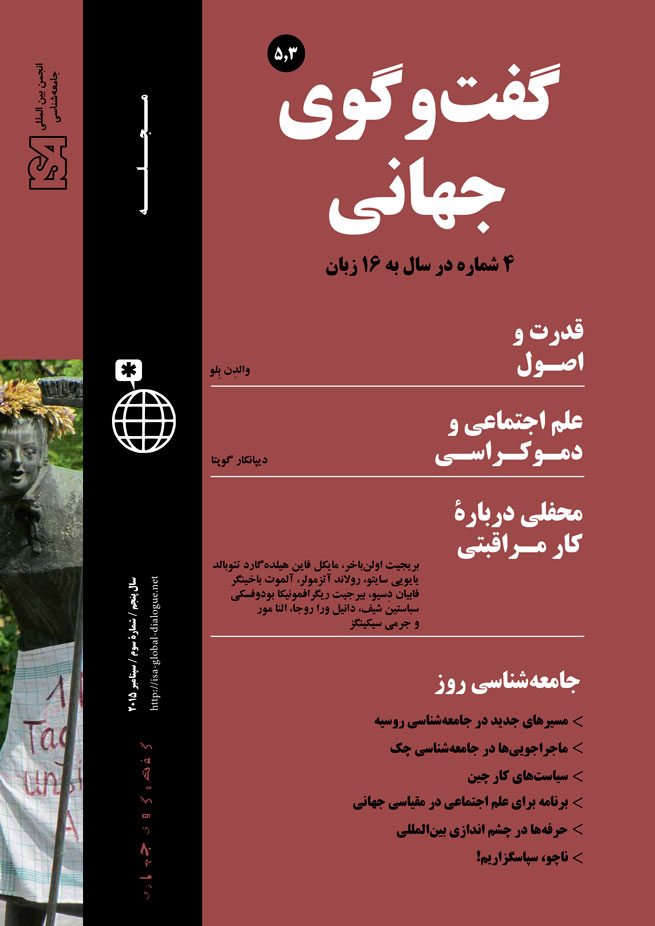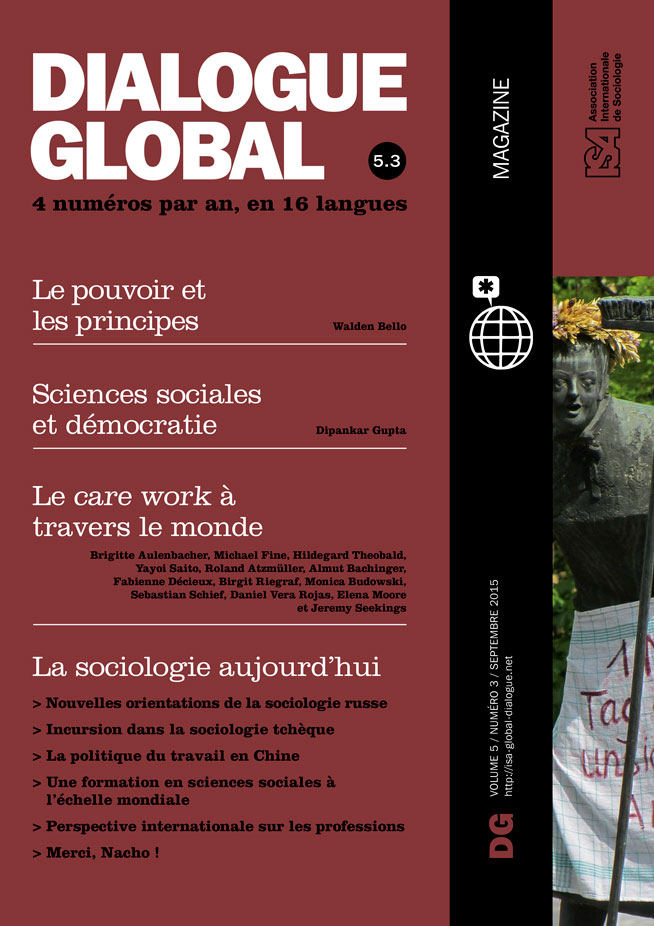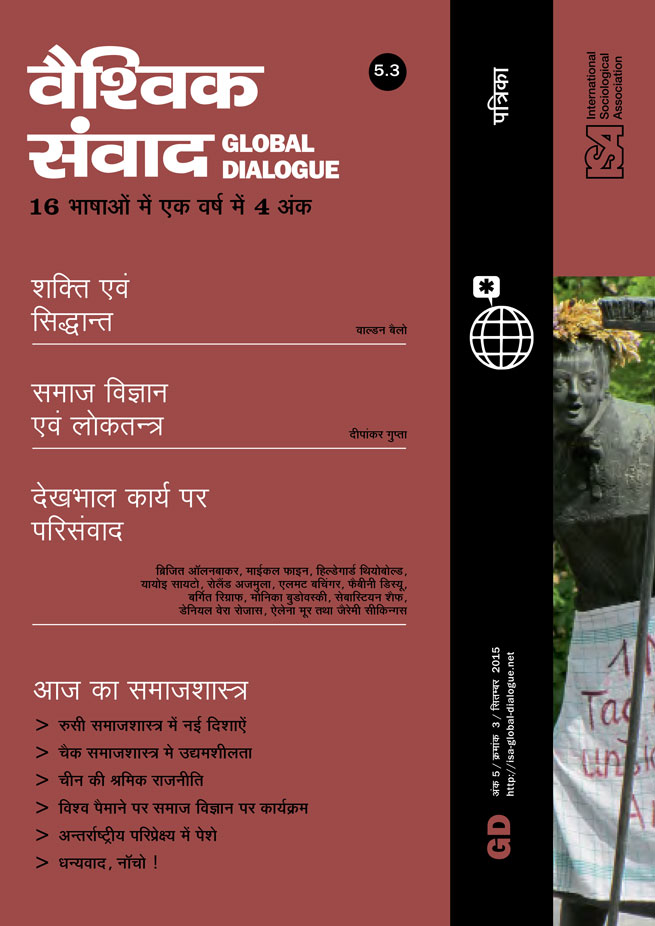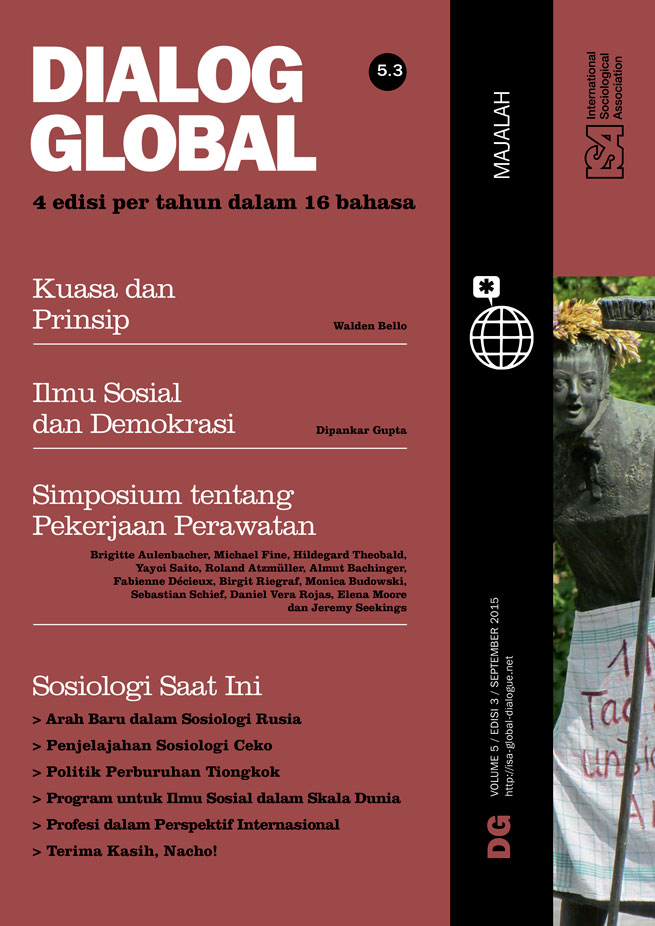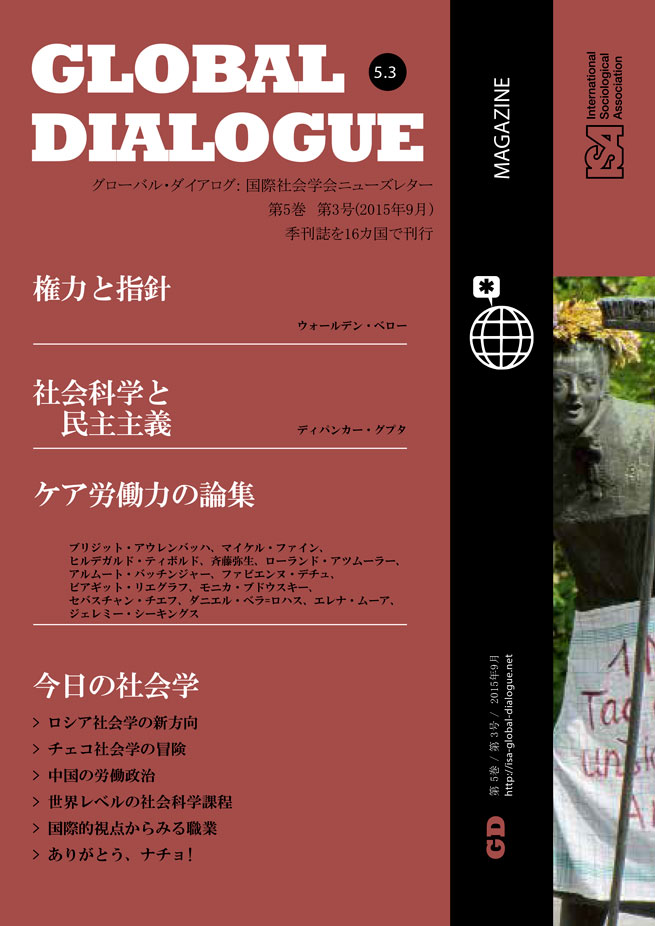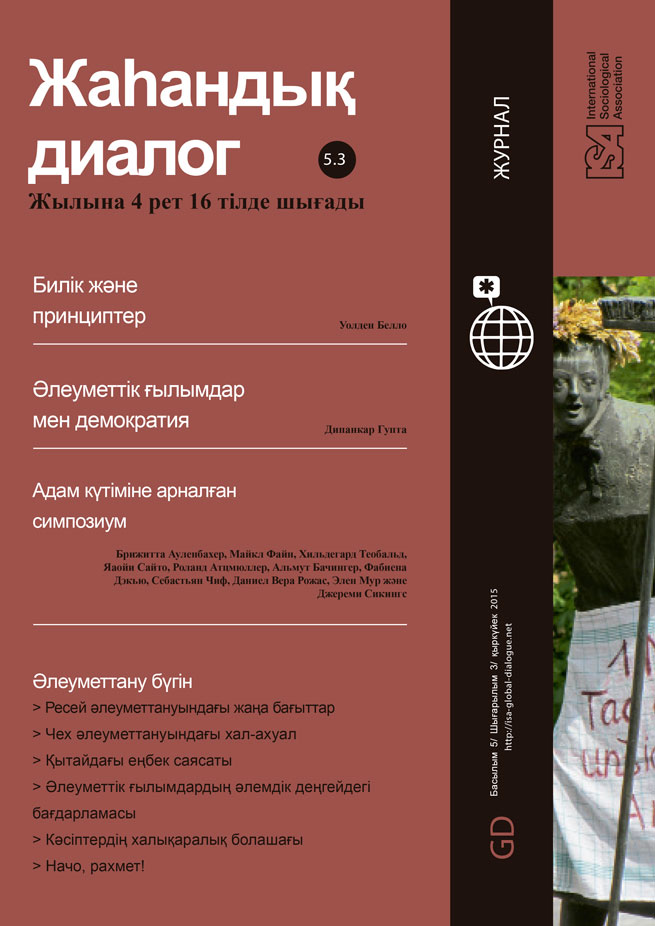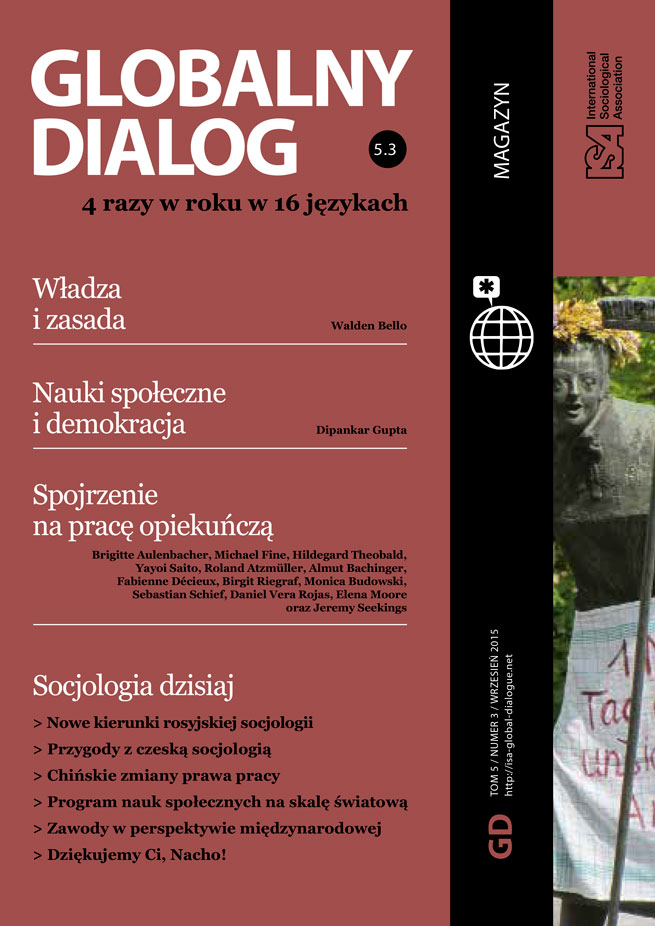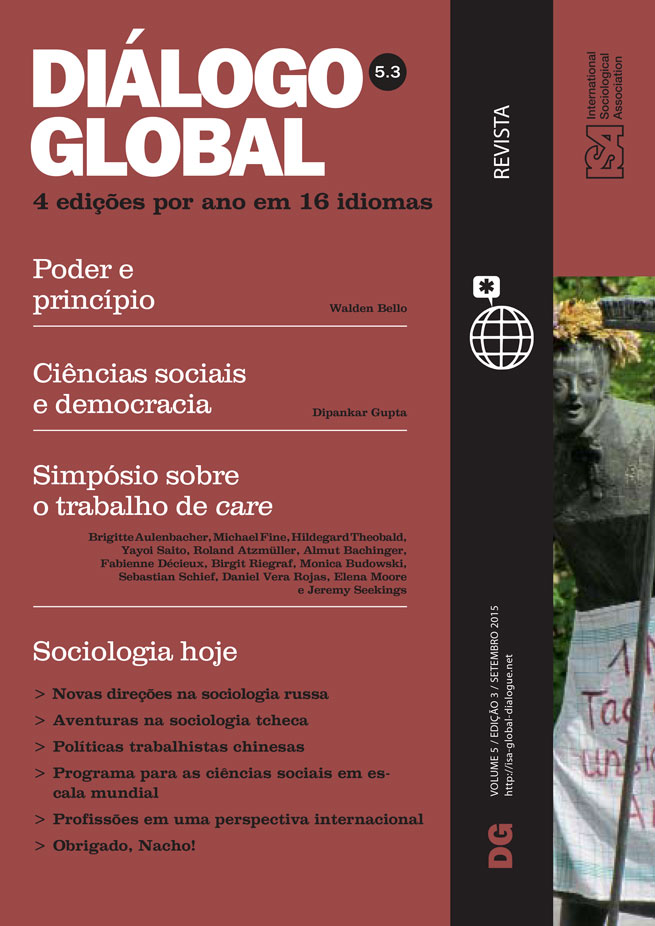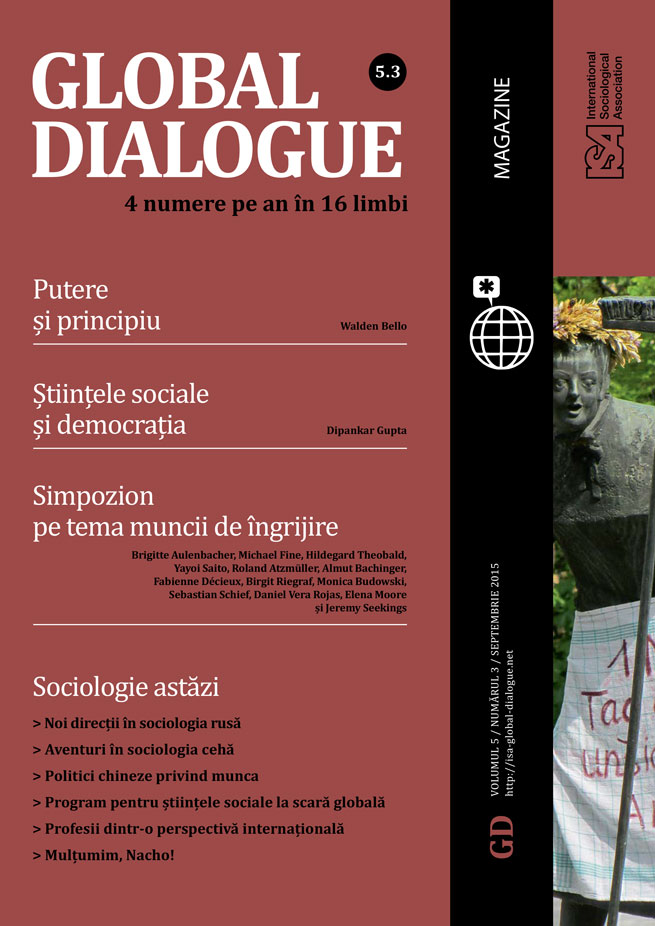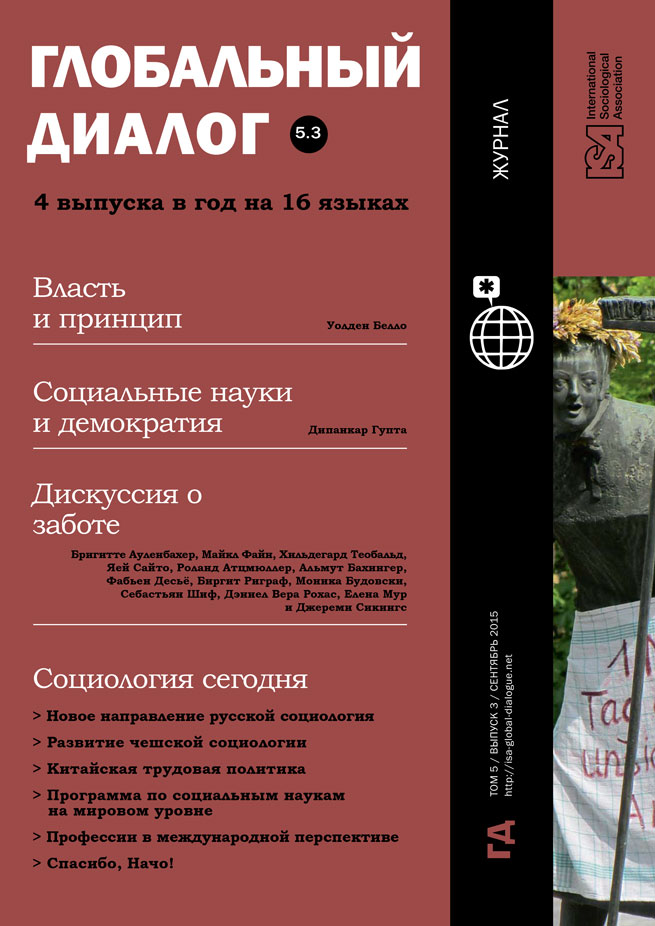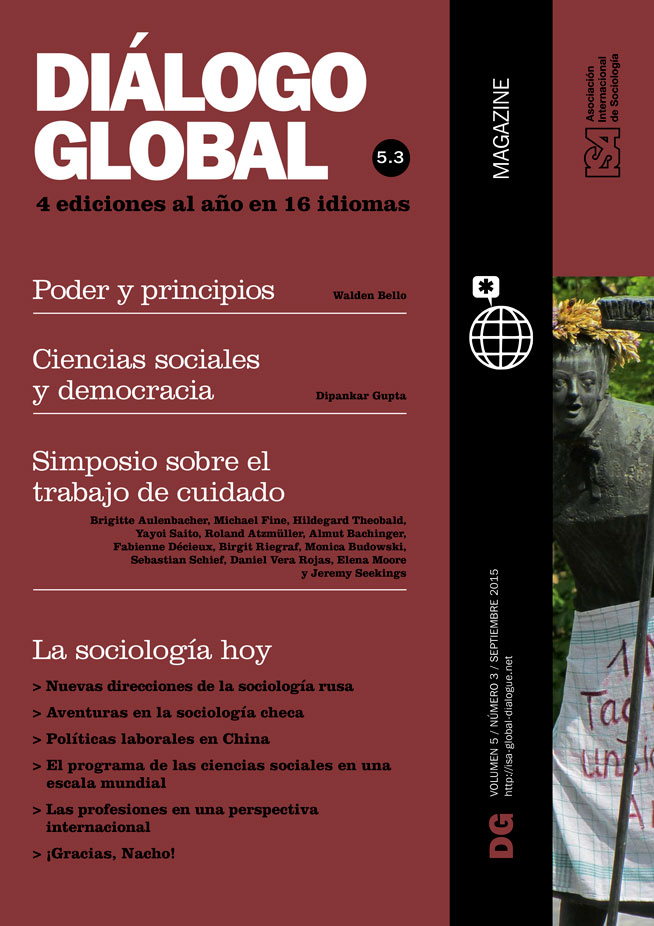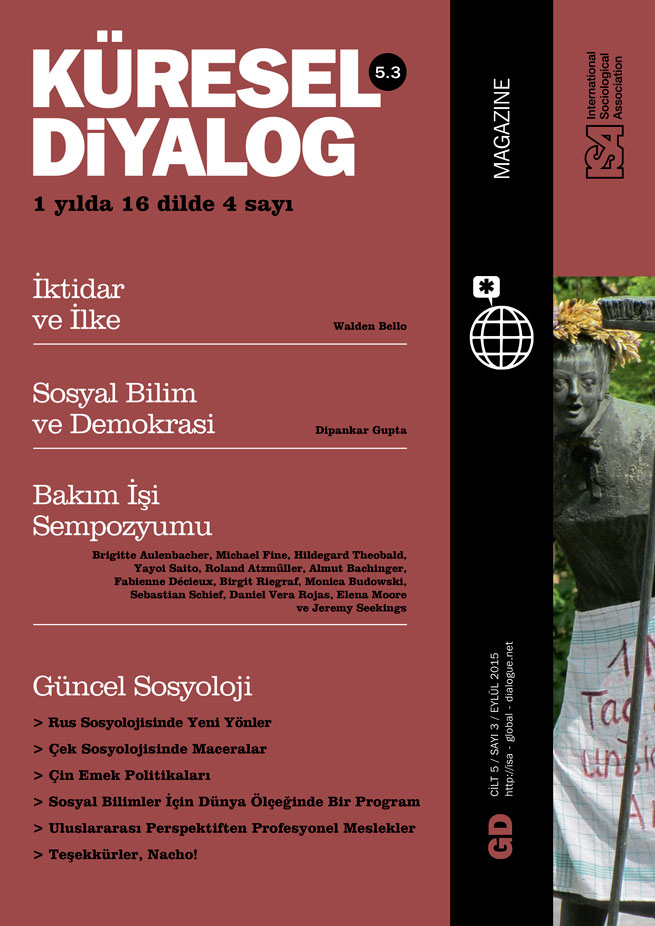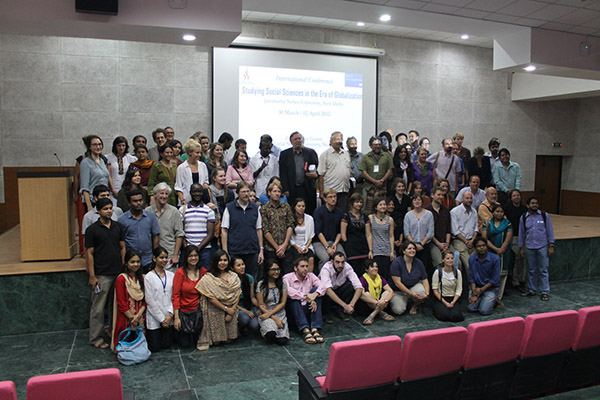During the last two decades creating a non-hegemonic social science on a world scale has been a major concern for social scientists in both the South and North. Critiques of Eurocentrism and the rise of social theory from the Global South have generated enthusiastic debate about the necessity of, and opportunities for, learning from the periphery/South and through mutual learning on a world scale as well as a dialogue between professional and public engagements of social scientists.
What light can the thirteen years’ experience of the Global Studies Program (GSP) shed on these debates? The GSP is a two-year social science Master’s Program, jointly conducted by the University of Freiburg, Germany; the University of KwaZulu-Natal and later the University of Cape Town, South Africa; FLACSO, Argentina; Jawaharlal Nehru University, India; and Chulalongkorn University, Thailand. Its curriculum includes sociology, political science, anthropology, labor studies, international relations, and geography. Since 2002, more than 300 students from 60 countries have joined the GSP, each studying at three of the participating institutions.
Through this international, interdisciplinary and intercultural program, students experience different university traditions, teaching and learning processes. They discover the societies that they live in during the program, and also rediscover their own. The final product is a unique high-quality master’s degree, and individuals gain incomparable life experiences – including, above all, a set of values which form the basis of a global social science. The GSP experience enables students to understand what real “cosmopolitanism” is: the intercultural environment offers them the opportunity to live in places and conditions different from those they know best. Through these encounters, students develop new abilities to understand, to tolerate and to recognize “others.” Inadvertently, the GSP has become a platform on which participants develop and consolidate, what Ari Sitas calls an “ethic of reconciliation,” ideas of voluntarism and cooperation, mutuality and respect.
The practice of social science on a world scale requires intercultural competence not only on the part of students, but also faculty members and administrators, who are expected to be sensitive to the needs of students from different countries, institutional settings, work cultures, etc. The readiness to assist these students is one of the aspects of the development of such a social science on a world scale, which encourages participants to see students not as a burden, but as a potential. The GSP faculty engages an important “global public”: articulate, confident, socially and interculturally-engaged “global” citizens, who bear the potential to shape our globally connected societies.
A non-hegemonic mutual learning should be a core aspect of any such program. One can imagine that GSP – with partner universities in four continents, each with its particular traditions and knowledge systems from both Europe and the Global South – is a perfect framework for recognizing and applying a globally connected system of knowledge. Raewyn Connell notes that as graduate programs in the metropole are constrained by the professional norms of metropolitan science, it is a challenge for them to move towards a globally inclusive curriculum. The GSP at the University of Freiburg faced precisely this challenge in the last decade. Nevertheless, despite all the curricular and institutional constraints, faculty members paved the way to create more inclusive readers through new courses and lectures such as “The Modernity Debate and Challenges to Eurocentrism,” “Sociologists as Public Intellectuals: A Southern Perspective,” “Metaphor, Allegory and Parable in Global Sociology.” Students responded positively. Critical essays, especially by students from North America and Germany, demonstrated how their undergraduate studies had been dominated by Euro-America-centric knowledge, and how little they were aware of it.
The GSP dynamics of building dialogue between professional academic work and public engagement is a contribution to what we now call “public sociology.” When we revisit the history of GSP, we will find that during their studies at partner universities in different countries, students were encouraged to do fieldwork, often connected to problems at the heart of these societies. Required internships enable them to participate in the actual work and lives of social movements, NGOs, community organizations, trade unions, as well as academic and governmental institutions, etc. In Michael Burawoy’s terms, “they retain their connection to civil society.” The students become “organic” GSPians whether or not they are sociologists. In most cases, these “public” engagements develop into academic work and scientific analyses in their master’s theses. The GSP provides a platform for connecting public, policy, critical and professional sociology, and, in particular, generating a dialogue between professional and public sociology.
One of the GSP’s most serious constraints is the market agenda that shapes university systems around the world. A crucial issue is the increasing precarious working conditions for academic staff, which negatively affects the program’s stability. Especially in Germany, mid-level faculty and administrators have no job security, and most will have to leave the program at some point regardless of their commitment to the vision of the GSP.
Another concern is the uneven power relations between the partner universities. Consciously or unconsciously, the University of Freiburg is often perceived as taking a dominant role in the partnership; in the future we can expect partner universities to insist on an equal role in shaping the program. Indeed, an egalitarian structure is crucial for the success of the GSP and similar programs.
Despite all challenges, however, the GSP experience provides valuable input into the development of a social science on a world scale, encouraging learning from the periphery, practicing mutual understanding and opening an academic platform where sociological imagination can be combined with political imagination.
Ercüment Çelik, University of Freiburg, Germany, and Board Member of ISA Research Committees on Labor Movements (RC44) and Social Movements, Collective Action and Social Change (RC48) <ercumentcelik@gmail.com>
